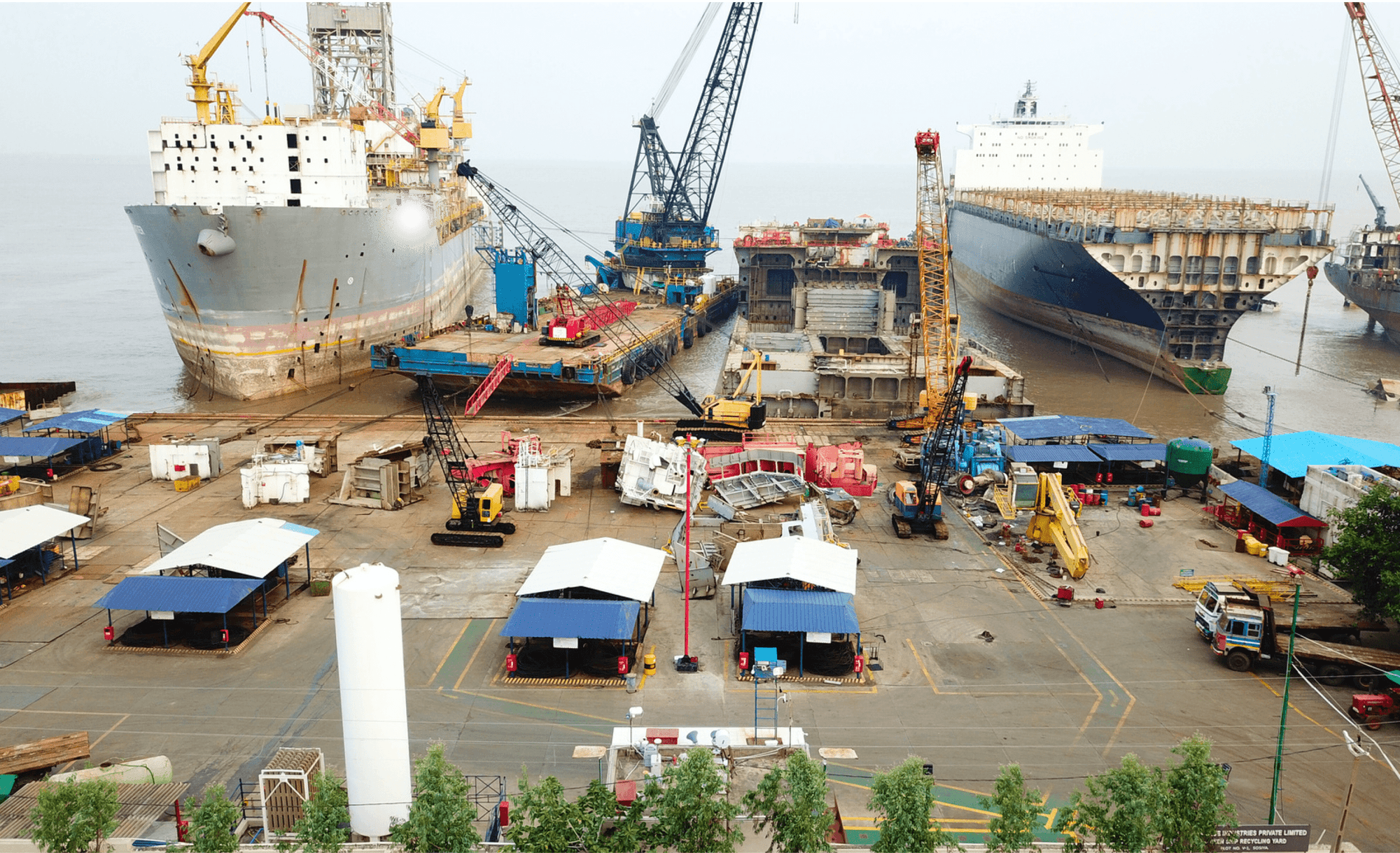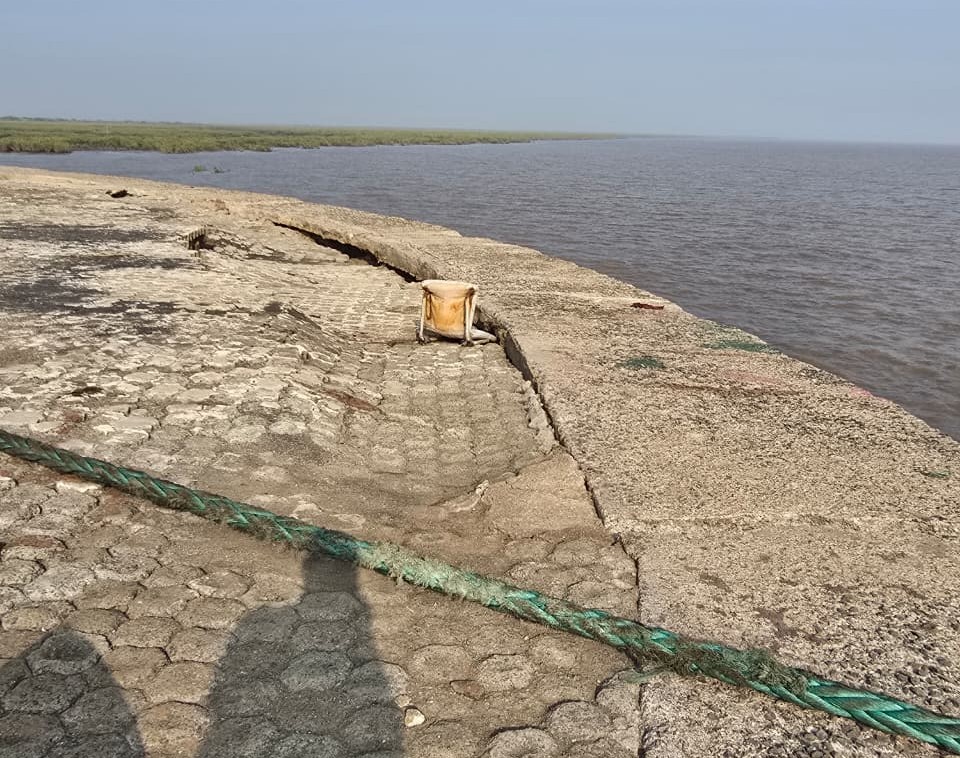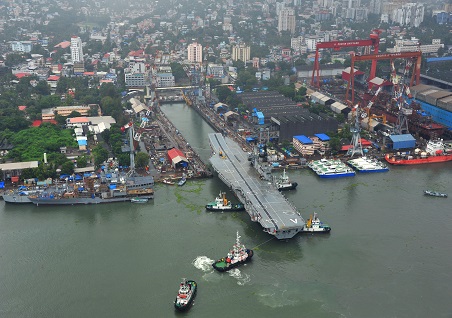The Rise of the ‘Shadow Fleet’: Navigating the Russia-Ukraine Conflict and Global Shipping Sanctions
As the Russia-Ukraine conflict rages on, the intricate world of global shipping has found itself in the crosshairs of Western media, which has increasingly used the term “shadow fleet” to describe tanker ships transporting Russian crude oil to foreign markets. The label, evocative of clandestine dealings and secretive ownership structures, paints a picture of pirate-like vessels, avoiding detection while trading in contraband. India, among other nations, has been scrutinized, accused of being a hub for this fleet, allegedly “laundering” Russian oil to bypass international sanctions. But what is the reality behind these claims, and how does global shipping work in this murky context?

The Complex Structure of Global Shipping
To understand the mechanics behind the so-called “shadow fleet,” one must first delve into the structure of global shipping, which is a web of multinational interests and hidden complexities. The industry is highly diversified, with Greek shipowners controlling about 20% of the global merchant fleet. China, having recently overtaken Japan, now holds the second-largest share. The building and repair of ships are concentrated in shipyards across China, Japan, and South Korea. However, key aspects of the industry, such as marine insurance, ship finance, and the enforcement of international regulations, are primarily controlled by Western nations, notably the U.K. and parts of Europe. This creates a system in which U.S. and European sanctions are often enforced through economic levers like insurance and finance.
Each ship is a nexus of various stakeholders across different nations. Owners, operators, insurers, and flag states all play a role in the vessel’s activities. Ships are required to be registered with a flag state, a country under whose flag they sail. In theory, the flag should indicate the origins of the ship and help track its movements. However, in practice, many vessels hop between flags to avoid scrutiny, with ships registering under so-called Flags of Convenience (FoCs) in nations like Panama and Liberia. These countries, originally chosen for their tax benefits, now obscure the true ownership of ships, allowing them to avoid rigorous inspection and hide their activities.
The role of classification societies, organizations that certify the safety and technical standards of ships, is also critical. These organizations facilitate insurance coverage, especially the type known as Protection and Indemnity (P&I), which insures against loss of life and property damage. P&I insurers are often organized into “clubs” to pool risk, giving them significant influence over which ships can operate within certain legal frameworks. Yet even within this highly regulated space, some ships find ways to circumvent the rules.
Evading Sanctions: How Ships Keep Their Insurance
The complex interplay between international sanctions, flag states, and insurance creates loopholes that allow ships carrying Russian oil to continue trading, despite restrictions. For example, Turkey, a NATO member, has been found to be extensively involved in trading Russian oil, often at prices exceeding the $60-a-barrel cap set by U.S. sanctions. Should a Turkish ship be caught violating the sanctions, it risks losing its P&I club membership, effectively grounding the vessel. However, many shipowners are adept at gaming the system. They may divest ownership of the ship, transfer its management to a European entity with insurance coverage, and the vessel can return to trading, its true ownership still intact.
This strategy is common in the shipping world, where corporations often set up shell companies that technically own just one or two ships, allowing them to evade direct penalties. Ships may also be registered in countries that are not signatories to international maritime regulations, such as Eswatini, a small African nation. Because Eswatini is not bound by the rules of the International Maritime Organization (IMO), it can issue ship registrations that allow vessels to bypass international scrutiny. In this way, the shadow fleet operates in the gray areas of global shipping law, keeping its activities just below the radar of enforcement agencies.
The Accusations Against India
Among the countries accused of facilitating the shadow fleet’s operations, India has drawn particular attention. Following the imposition of sanctions on Russia, many Russian-affiliated ships began striking deals with Indian firms. Some even shifted their operations to Dubai, a major maritime hub where Indian shipping interests hold a significant presence. The Indian Register of Shipping (IRS), a classification society, has also been linked to an increase in the number of vessels it certifies, adding to the allegations that India is aiding Russia’s efforts to circumvent sanctions.
In response, the IRS has clarified that its primary responsibility is ensuring the safety of ships and that it does not compromise this duty for commercial interests. The organization reported that many of the vessels it has certified were registered under the flags of Liberia and Cyprus, and none flew the Russian flag. This highlights the complexity of the accusations, as many of the ships involved are not explicitly Russian-owned or registered, further obscuring the enforcement of sanctions.
This situation echoes the precedent set during previous sanctions regimes, such as those against Iran in 2015. Back then, approximately 160 ships, many of which were involved in trading Iranian oil, switched their classification to the Korean Register of Shipping, a strategic move since South Korea is a U.S. ally. Changing a ship’s name or flag is another common tactic, allowing it to slip through the cracks in enforcement.
The Challenges of Enforcing U.S. Sanctions
The U.S. and its allies face significant challenges in enforcing sanctions on Russian oil. The global economy is intricately linked to energy supplies, and many experts agree that a rigorous crackdown on Russian oil exports could have severe repercussions for the world economy. Additionally, the very structure of the shipping industry—with its opaque ownership, flexible registration options, and reliance on voluntary disclosure—makes it difficult to trace the true origins of a ship’s cargo or its ultimate destination.
The limited enforcement of sanctions is evident in recent reports from the BBC, which revealed that the U.K. had taken only mild action against 35 companies that had violated the price cap on Russian oil. Industry insiders suggest that harsher enforcement could harm U.K. businesses, which rely heavily on maritime trade. As a result, many ships involved in the shadow fleet continue to operate with minimal interference, transporting Russian crude to markets around the world.
Conclusion: The Persistence of the Shadow Fleet
Despite the sanctions and international efforts to curtail the flow of Russian oil, the shadow fleet remains a significant force in global shipping. Through complex ownership structures, flag-hopping, and insurance loopholes, these ships navigate the turbulent waters of international law, continuing to deliver Russian crude to foreign markets. For nations like India, which have been accused of complicity, the challenge is to balance economic interests with global responsibilities, navigating the fine line between legal trade and sanction evasion in an increasingly interconnected world.
Author: shipping inbox
shipping and maritime related web portal








